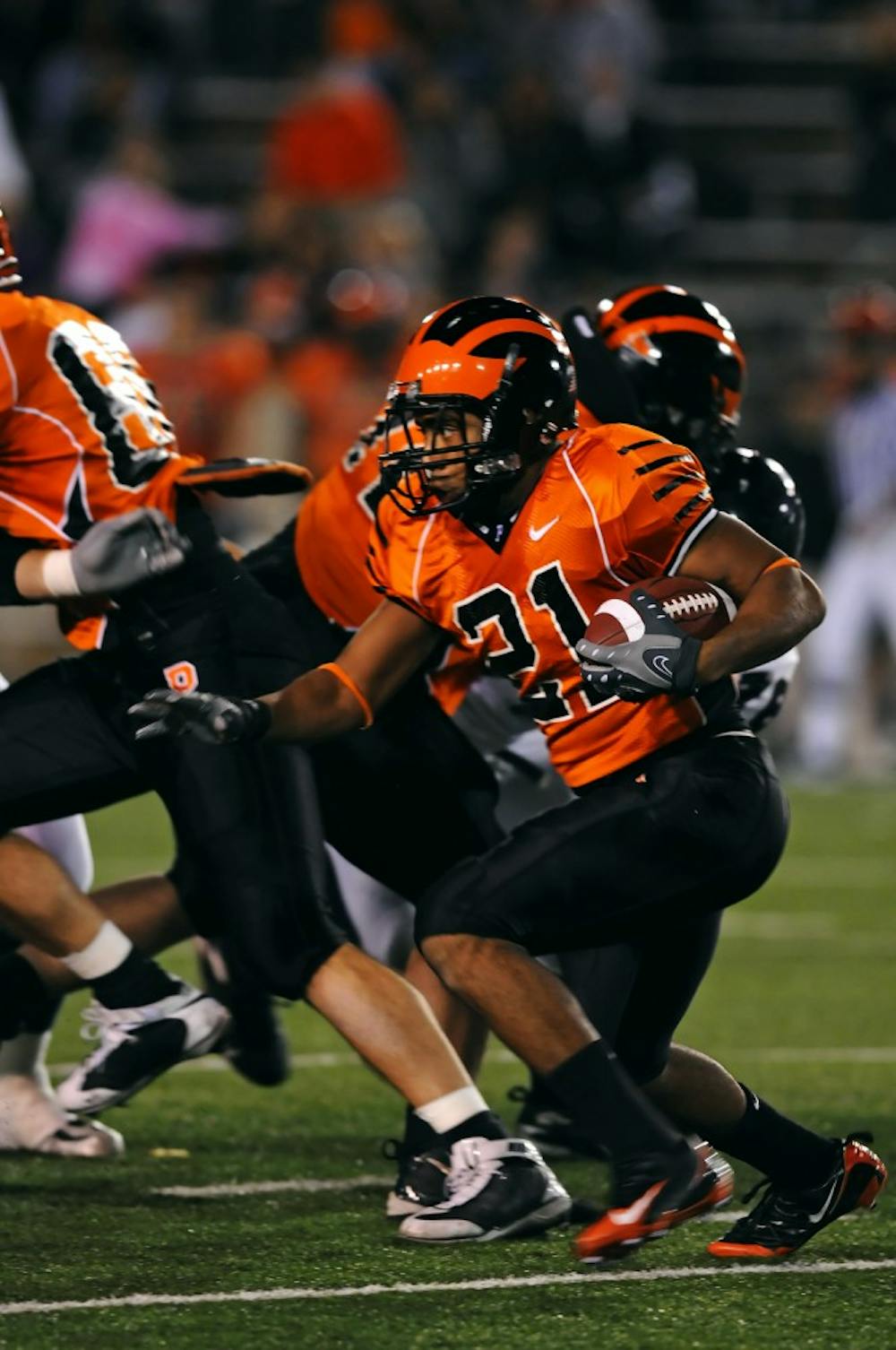
Last October, after Jordan Culbreath was diagnosed with a rare and life-threatening aplastic anemia, it wasn’t a sure thing that the senior Princeton running back would see his graduation day.
Remarkably, Culbreath recovered not only his health but also his place in the starting lineup, and he is slated as the Tigers’ primary back against Penn on Saturday.
Culbreath’s inspirational story is even more unlikely considering that he was recruited by Division III Washington and Lee and instead chose to walk on to the Princeton team. He earned the starting spot as a junior two years ago, when he recorded the eighth 1,000-yard rushing season in Tigers history.
Though he entered 2009 as the preseason Ivy League Offensive Player of the Year, Culbreath’s season was derailed by his declining health, and he missed the team’s final eight games.
Aplastic anemia is caused by insufficient cell replenishment by the body’s bone marrow, which leads to dangerously low red blood cell, white blood cell and platelet counts.
If left untreated, patients survive a median of three months. In younger patients, the disease can be cured by a bone marrow transplant from a compatible donor. Though Culbreath’s sister wanted to donate, she was not a full match.
Instead, Culbreath was admitted to the National Institute of Health, where he received blood transfusions and a 20-drug cocktail of immunosuppressants. With these treatments, the response rate is about 60-70 percent, with a 70-80 percent long-term survival probability.
Fortunately, Culbreath made a slow but steady recovery and was cleared by doctors to begin physical activity in March. Three months later, he received a medical hardship waiver from the Ivy League for a fifth year of eligibility and surprised teammates when he returned for the beginning of preseason camp.
Even now, Culbreath receives weekly blood tests and bimonthly platelet transfusions.
“I’m a football player — it’s part of me and my identity,” Culbreath told The New York Times last month. “Getting back on that field for me is almost like not allowing that illness to beat me.”
Culbreath’s return is all the more remarkable because of his strong performance on the field. He currently leads Princeton in rushing attempts (64), yards (338) and yards per carry (5.3).
“He’s a pretty big kid, fast and real athletic,” Penn senior linebacker Zach Heller said. “Two years ago, he was the best kid in the league, so we still have a lot of respect for him.”
In Culbreath’s last meeting with Penn two years ago — a 14-9 Quakers victory — he accounted for more than a third of the Tigers’ offense, including a career-high 52 receiving yards.
Penn will look to defend its perfect conference record by shutting down Culbreath and the rest of what Heller called a “pretty interesting offensive scheme.”
“You have to tip your hat to a guy who had a life-threatening situation and came back,” Heller said. “I think all of us kind of have a respect for him, but he’s still your opponent and you’ve still gotta go out there and try to beat him.”
The Daily Pennsylvanian is an independent, student-run newspaper. Please consider making a donation to support the coverage that shapes the University. Your generosity ensures a future of strong journalism at Penn.
DonatePlease note All comments are eligible for publication in The Daily Pennsylvanian.





